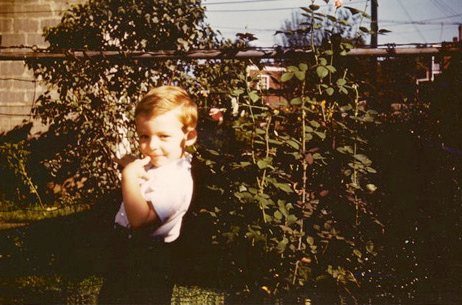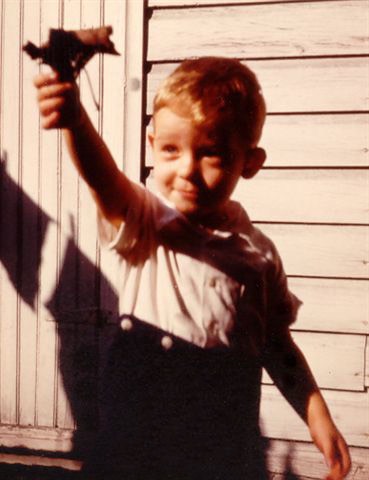
No artist who undertakes to perform before the public goes onstage entirely alone. Each time an entrance is made, whether the discipline to be demonstrated is singing, acting, or playing an instrument, a palpable but invisible entity always tags along for the ride. I’m not talking about one’s accompanist or the conductor or members of an orchestra or chorus or fellow thespians. No, the hitchhiker, as it were, is internal. Some like to designate this “other” as an “inner child.” I see him (for me, obviously, it’s a he) as the primal me, the little guy who first evinced shockingly mature notions about beauty, sound, music as an emotional expression (or release, if you will), that intuitive part that set everything in motion with no intellectual grasp of any of it, just an innate understanding that, it seems to me, was brought along from another plane where it had been highly developed well before thought, effort, or the repetition of practice had anything to do with it. Music burst forth like Minerva springing full-blown from the head of Jove. The flow couldn’t have been stanched no matter the degree of disapproval or dismissal turned on it by those enjoying the status of being older and, in theory, wiser. Oh, the mechanics (how to finger Bach and Chopin, how to produce head voice and sing on the breath) had to be learned from scratch, as they have to be each time around, but some seed that produces a result that can be neither learned nor taught was right there from the get-go, just waiting to be properly nurtured.
My little guy’s name is Dougie—not out of whim, but because I am Bruce Douglas and for some reason my family, in the beginning, decided that the diminutive of the middle one should be my “calling name.” I grew weary of further diminutions (“Duddy-wuddy” was the nadir) and in Lois Emily Stone’s third-grade class announced one day that I would henceforth be Bruce. Miss Stone and my classmates got it from the first moment, and not one time thereafter did any of them again call me “Doug.” It took the family years to make the adjustment. What I didn’t know, indeed couldn’t possibly have known at the time, was that Dougie, freed of all the outer burdens, would stick around, not as some ominous doppelganger or demanding alter ego, but as the very heart of goodness and sweetness, a most particular helpmeet in dealing with the outrageousness of human existence.
I have balanced myself (precariously) on his fragile shoulders for decades, and he has trusted me not to crush his spirit or reveal his overwhelming shyness. I put on the mask of bravado requisite to doing a job not meant for the tenderhearted but never stopped channeling his wide-eyed awe at having the honor of doing that job. I remember standing among great choral and chamber orchestral forces and wonderful fellow soloists during a performance of Bach’s St. John Passion in Fort Worth, Texas, and thinking that there was simply no higher privilege than singing such music, period. This was Dougie, keeping things in proper perspective.
He sits with me at the computer, too, amazed that tapping away with stiff, arthritic fingers brings forth such interesting combinations and sequences of words. The ethos of the writer behind the words comes somewhat easier to the hulk than did that of either the baritone or the pianist behind the notes (because, as opposed to circumstances in which performance “nerves” are a major factor, there’s not the same amount of adrenalin pumping), but on a certain level it’s all the same. You either create or you don’t, whether a character on the stage or one on the page, you originate or ape, convey or hoard, inspire or tire, move or bore, give or withhold. When I free Dougie to express himself as he will (never an easy liberation to effect, because the chronologically mature always imagine we know best, which is only true in practical matters, never in artistic ones), he always lifts me to where I need to be to approach the creative process, an approach that must be made each time as if it were the first. One may be continuing something already begun, but in the same way that the voice has to be warmed up before singing or the body conditioned at the barre before dancing, the authorial muse must be calescent before the symbols that signify meaning can begin to appear on the screen. If Euterpe and Terpsichore are respectively able to assume full responsibility for the evocation of music and dance, for the writing of oh, say, a biography, the full committee of Calliope, Clio, Erato, Melpomene, and Thalia has to be in the room. It took quite some time to grasp the fact that the muses—any of them—respond far more readily to Dougie’s sweet call than to the quasi-abrasive summonses put out in fits of frustration by the grown-up guardian of that sweetness.
Dougie still secretly sings and plays (as beautifully as ever, too, though the outer housing in which he’s stuck has neither voice nor manual dexterity left). Once a musician, always a musician, even if the sounds become just an internal manifestation that only the hulk can hear. It is indeed consoling, when the housing is breaking down at an alarming rate of speed, to be sheltering puer eternis within. I don’t have the impression that he actually does any of the writing, but he actively comments and edits, always from the point of view of what’s beautiful and what’s the ultimate expression of a given thought or action, what says something in a way that cannot be improved upon. He thinks progressions of written words should be musical, that the language should be phrased just as one would phrase the musical line of a Schubert song. He’s right, though the concept is virtually a nineteenth-century one that isn’t necessarily appreciated in the era in which he is now supervising its practice. Real writing cannot be tailored to the limiting expectations of and demands for sound-bite brevity. It takes time and dedication, both to originate and then to read and assimilate, commodities in ever-shorter supply in our electronic age.
Is there a point here? It may be obtuse, or at least seem to be something of a non-sequitur, but it goes rather like this: The very small child who, for instance, holds a leaf up for attention (see below) isn’t asking for an observation about the leaf. He is too young to differentiate between himself and the object he displays. If the sought-after and adored observer, seeing the proffered object, responds, “Oh, that’s just an old dead brown leaf, what’s so special about that?” a serious emotional disconnection occurs and the damage is instantaneous. For the concluding “that,” the little guy hears you. Moral of the story: there are no occasions when a small child’s concept of beauty should be received in any way other than with gratitude for the effort put forth to share. All adult investment in “getting reality,” “knowing better,” and other ego-driven reactions must be set completely aside. Anything less will immediately compromise the small being’s ability to allow his voice, in any form, to soar in later years. All praise, then, to brown leaves!!

Photographs taken at the home of my beloved maternal grandparents, A. L. and Bernardine Krider Morgan, 122 Fairground Avenue, Hagerstown, Maryland. The year isn’t important—let’s just say it was sometime during the Truman administration.